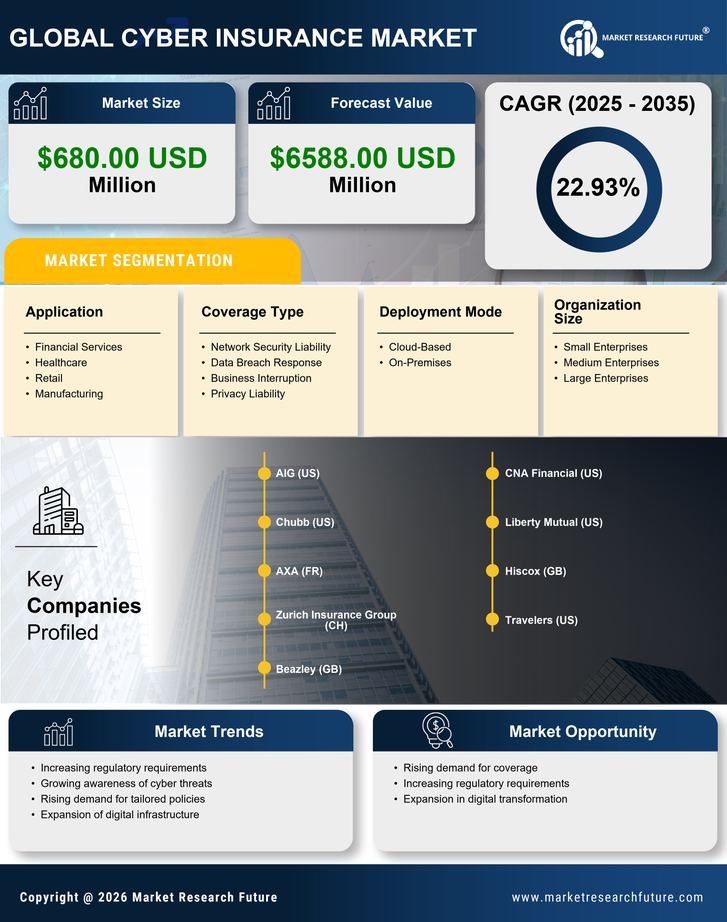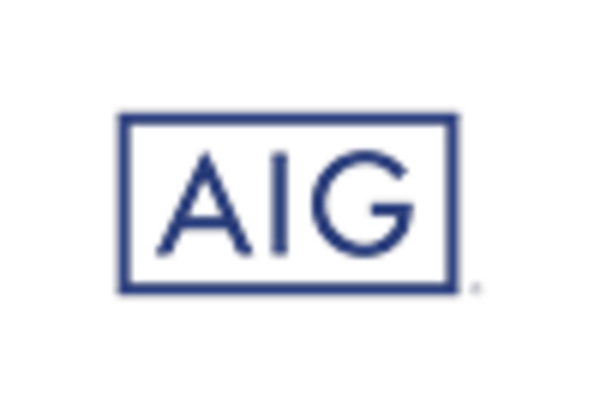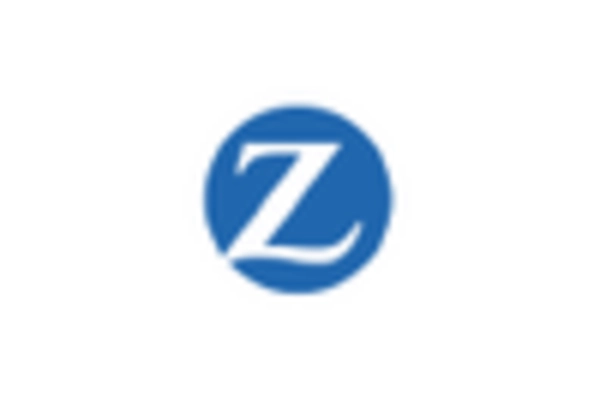Evolving Regulatory Landscape
The evolving regulatory landscape in the GCC is influencing the cyber insurance market. Governments are increasingly recognizing the need for stringent cybersecurity measures, leading to the introduction of new regulations and compliance requirements. For instance, the implementation of data protection laws mandates organizations to secure sensitive information, thereby increasing the demand for cyber insurance. In 2025, it is projected that compliance-related costs could account for up to 15% of IT budgets in the region. This regulatory pressure compels businesses to invest in cyber insurance as a means of ensuring compliance and protecting against potential fines and legal liabilities. The cyber insurance market is thus likely to experience growth as organizations seek to align their risk management strategies with regulatory expectations.
Rising Cyber Threat Landscape
The increasing frequency and sophistication of cyber threats in the GCC is a significant driver for the cyber insurance market. Cyberattacks, including ransomware and data breaches, have become more prevalent, prompting organizations to reassess their risk exposure. In 2025, it is estimated that cybercrime could cost businesses in the region over $30 billion annually. This alarming trend underscores the necessity for comprehensive cyber insurance coverage to mitigate financial losses associated with such incidents. As awareness of these threats grows, businesses are more inclined to invest in cyber insurance policies that provide financial protection and support in the event of a cyber incident. The cyber insurance market is thus poised for expansion as organizations prioritize cybersecurity measures.
Growing Digital Transformation
The rapid pace of digital transformation across various sectors in the GCC is a primary driver for the cyber insurance market. As organizations increasingly adopt cloud computing, IoT, and AI technologies, they expose themselves to a wider array of cyber threats. This shift necessitates robust risk management strategies, including cyber insurance. In 2025, it is estimated that the digital economy in the GCC will contribute approximately $100 billion to the region's GDP, highlighting the urgency for businesses to protect their digital assets. Consequently, the demand for tailored cyber insurance products is likely to surge, as companies seek to mitigate potential financial losses from cyber incidents. The cyber insurance market is thus positioned to grow significantly as businesses recognize the importance of safeguarding their digital infrastructures.
Increased Investment in Cybersecurity
The surge in investment in cybersecurity measures across the GCC is driving the growth of the cyber insurance market. Organizations are recognizing that robust cybersecurity frameworks are essential to protect their assets and reputation. In 2025, it is anticipated that spending on cybersecurity solutions in the region will exceed $10 billion, reflecting a commitment to enhancing security postures. This increased investment not only helps in preventing cyber incidents but also creates a greater need for cyber insurance as a complementary risk management tool. Companies are likely to seek policies that align with their cybersecurity strategies, thereby fostering growth in the cyber insurance market. As businesses enhance their defenses, the demand for insurance products that cover potential breaches will likely rise.
Emergence of Cyber Insurance Awareness Programs
The emergence of awareness programs focused on cyber insurance in the GCC is contributing to the market's growth. Educational initiatives aimed at informing businesses about the benefits of cyber insurance are becoming more prevalent. These programs highlight the importance of risk management and the financial protection that cyber insurance can offer. In 2025, it is expected that participation in such programs will increase by 25%, as organizations seek to better understand their vulnerabilities and the available solutions. This heightened awareness is likely to drive demand for cyber insurance products, as businesses recognize the necessity of safeguarding against cyber threats. The cyber insurance market is thus benefiting from these initiatives, which promote informed decision-making regarding risk management.
















